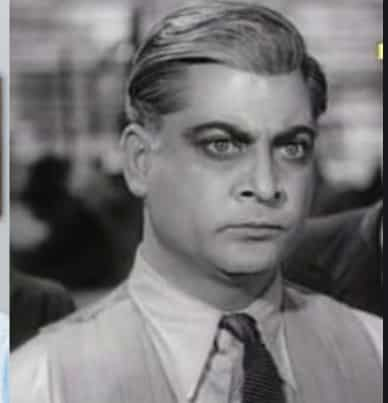Vladimir Putin has "walked the walk" since the West imposed new sanctions on Russia over the Ukraine crisis, but not in the way Barack Obama intended.
Announcing sanctions against Russian companies and individuals this week, the U.S. president used the phrase in urging the Kremlin leader to do more than just "talk the talk" when it comes to finding a diplomatic solution to the standoff.
In a move that seemed designed to mock Obama's choice of words, state television lingered on Putin striding with knowing confidence across a vast hall to deliver his verdict on the sanctions to reporters during a visit to neighbouring Belarus.
Completely unruffled, Putin denied U.S. charges that Russian troops are in Ukraine, blamed the crisis on the West and ratcheted up the war of words by warning that Moscow could bar some Western companies from involvement in Russia's economy.
"It was handing out those pies on the Maidan that paved the way to the crisis," he said, referring to a visit in which U.S. Assistant Secretary of State Victoria Nuland offered food to anti-government protesters on Kiev's main square in December.
There is no overt sign that the asset freezes and travel bans imposed by the United States and European Union, reinforced by moves by Japan and Canada, are having any effect on Putin.
And Western Kremlin watchers remain deeply uneasy about forecasting just what the president might do next in Ukraine.
He may think he has little reason to be the one to "blink" first; although the annexation of the Crimea peninsula and the massing of Russian troops on the border with Ukraine have left East-West relations more tense than at any time since the Cold War, Putin's popularity has soared in Russia.
A poll on Wednesday showed 82 percent of Russians support the former KGB spy's actions, his highest rating since 2010.
The sanctions were considered so mild in Russia that share prices rose in Moscow when they were announced. Moscow also regards the European Union and the United States as divided over how to handle the crisis, largely because the EU is heavily dependent on Russian oil and gas and has more trade with Moscow.
Some Russians say Putin's position may even be hardening.
"The sanctions have an impact on Putin but not necessarily the impact intended. The West wants to deter him, make him back down, split him from his entourage, set the 'oligarchs' against him, make the Russian people mistrust and topple him," said Dmitry Trenin, head of the Moscow Carnegie Center think-tank.
"In my view it will not work. Sanctions could contribute to Russia being more of an adversary to the U.S. - poorer, less connected to the world and less predictable."
The West's immediate aim is to ensure Russia does not invade eastern Ukraine to annex mainly Russian-speaking parts of the country where pro-Moscow separatists have seized control of administrative buildings.
Putin denies he has any intention of sending in troops, but the West says Russian forces are already operating in eastern Ukraine incognito and he has reserved the right to invade if Russian speakers or compatriots are under threat.
Putin's aims appear be to maintain Russia's influence in the former Soviet republic of 46 million and, analysts say, to destabilise the new rulers in Ukraine who ousted pro-Moscow President Viktor Yanukovich and are now turning to the EU.
One risk for Putin is that events on the ground force his hand. If the Ukrainian army used force and this resulted in a high death toll, Putin would face fierce public pressure to respond militarily, even against his better judgment.
Another risk for his strategy is that the sanctions push the already stuttering economy deep into recession, stirring public anger against him.
The International Monetary Fund sounded a warning about this on Wednesday as it revised its 2014 growth forecast for Russia down to just 0.2 percent and said capital flight could reach $100 billion this year.
"What we have noticed is that the fear of sanctions could be even more powerful than the sanctions themselves, the fear of escalation of sanctions," said Antonio Spilimbergo, head of the IMF's mission to Moscow.
"Economically it's very difficult to estimate costs from individual sanctions. But the fear of uncertainty, especially among investors, is having a large effect."
Political analysts and sociologists also say that once the euphoria of annexing Crimea wears off, a "hangover" will set in where wealthy tycoons, the "oligarchs", resent not being able to travel abroad or visit children being educated in the West.
For now, Russian businessmen say that anyone who opposes Putin's policy in Ukraine, and rejects the barrage of pro-Putin coverage on state television, is keeping a low profile - but they say there are some who have misgivings.
Some observers say Putin is aware of this and has started to tone down his anti-Western rhetoric - not so much because of the sanctions but because he sees the possible dangers ahead.
"He's doing a lot of what he is doing because of his domestic agenda and audience but his comments are clearly less radical than the views expressed on Russian television," said Boris Makarenko of the Centre for Political Technologies.
"At the moment the Russian people are not feeling the impact of sanctions, but Putin knows he cannot allow the economic or political situation to deteriorate beyond a certain point."
Some Western diplomats say they, too, have detected signs that Putin is being increasingly cautious and does not want to take the risk of a military conflict in Ukraine.
"There have been some seriously intense moments in the past two months. There were a couple of moments when we feared the worst, when we thought, that's it, we're going to war," one envoy said. "It seems though now that the worst is over."
Putin, however, remains an enigma for most people and his intentions are hard to predict, meaning East-West tensions are likely to stay high at least until Russia pulls back troops from the border with Ukraine.
"We know - and we have been told by people very close to him - that he can go to bed promising one thing only to wake up in the morning and do the opposite," said the Western diplomat.
"We fear it is the devil inside him who is the final decision-maker, and no one else."
(Additional reporting by Lidia Kelly; Editing by Alastair Macdonald)
![submenu-img]() Meet Gautam Adani’s ‘right hand’, used to work as teacher, he’s now Rs 1600000 crore…
Meet Gautam Adani’s ‘right hand’, used to work as teacher, he’s now Rs 1600000 crore…![submenu-img]() Meet actor who worked with Amitabh Bachchan, Aishwarya Rai, entered films because of a bus conductor, is now India's..
Meet actor who worked with Amitabh Bachchan, Aishwarya Rai, entered films because of a bus conductor, is now India's..![submenu-img]() Meet Bollywood star, who was a tourist guide, married 4 times, went bankrupt, his son died by suicide, then...
Meet Bollywood star, who was a tourist guide, married 4 times, went bankrupt, his son died by suicide, then...![submenu-img]() This actor made Sharmila Tagore forget her lines, once did film for Rs 100, could never be a superstar because..
This actor made Sharmila Tagore forget her lines, once did film for Rs 100, could never be a superstar because..![submenu-img]() Volkswagen Taigun GT Line, Taigun GT Plus launched in India, price starts at Rs 14.08 lakh
Volkswagen Taigun GT Line, Taigun GT Plus launched in India, price starts at Rs 14.08 lakh![submenu-img]() DNA Verified: Is CAA an anti-Muslim law? Centre terms news report as 'misleading'
DNA Verified: Is CAA an anti-Muslim law? Centre terms news report as 'misleading'![submenu-img]() DNA Verified: Lok Sabha Elections 2024 to be held on April 19? Know truth behind viral message
DNA Verified: Lok Sabha Elections 2024 to be held on April 19? Know truth behind viral message![submenu-img]() DNA Verified: Modi govt giving students free laptops under 'One Student One Laptop' scheme? Know truth here
DNA Verified: Modi govt giving students free laptops under 'One Student One Laptop' scheme? Know truth here![submenu-img]() DNA Verified: Shah Rukh Khan denies reports of his role in release of India's naval officers from Qatar
DNA Verified: Shah Rukh Khan denies reports of his role in release of India's naval officers from Qatar![submenu-img]() DNA Verified: Is govt providing Rs 1.6 lakh benefit to girls under PM Ladli Laxmi Yojana? Know truth
DNA Verified: Is govt providing Rs 1.6 lakh benefit to girls under PM Ladli Laxmi Yojana? Know truth![submenu-img]() Remember Abhishek Sharma? Hrithik Roshan's brother from Kaho Naa Pyaar Hai has become TV star, is married to..
Remember Abhishek Sharma? Hrithik Roshan's brother from Kaho Naa Pyaar Hai has become TV star, is married to..![submenu-img]() Remember Ali Haji? Aamir Khan, Kajol's son in Fanaa, who is now director, writer; here's how charming he looks now
Remember Ali Haji? Aamir Khan, Kajol's son in Fanaa, who is now director, writer; here's how charming he looks now![submenu-img]() Remember Sana Saeed? SRK's daughter in Kuch Kuch Hota Hai, here's how she looks after 26 years, she's dating..
Remember Sana Saeed? SRK's daughter in Kuch Kuch Hota Hai, here's how she looks after 26 years, she's dating..![submenu-img]() In pics: Rajinikanth, Kamal Haasan, Mani Ratnam, Suriya attend S Shankar's daughter Aishwarya's star-studded wedding
In pics: Rajinikanth, Kamal Haasan, Mani Ratnam, Suriya attend S Shankar's daughter Aishwarya's star-studded wedding![submenu-img]() In pics: Sanya Malhotra attends opening of school for neurodivergent individuals to mark World Autism Month
In pics: Sanya Malhotra attends opening of school for neurodivergent individuals to mark World Autism Month![submenu-img]() DNA Explainer: What is cloud seeding which is blamed for wreaking havoc in Dubai?
DNA Explainer: What is cloud seeding which is blamed for wreaking havoc in Dubai?![submenu-img]() DNA Explainer: What is Israel's Arrow-3 defence system used to intercept Iran's missile attack?
DNA Explainer: What is Israel's Arrow-3 defence system used to intercept Iran's missile attack?![submenu-img]() DNA Explainer: How Iranian projectiles failed to breach iron-clad Israeli air defence
DNA Explainer: How Iranian projectiles failed to breach iron-clad Israeli air defence![submenu-img]() DNA Explainer: What is India's stand amid Iran-Israel conflict?
DNA Explainer: What is India's stand amid Iran-Israel conflict?![submenu-img]() DNA Explainer: Why Iran attacked Israel with hundreds of drones, missiles
DNA Explainer: Why Iran attacked Israel with hundreds of drones, missiles![submenu-img]() Meet actor who worked with Amitabh Bachchan, Aishwarya Rai, entered films because of a bus conductor, is now India's..
Meet actor who worked with Amitabh Bachchan, Aishwarya Rai, entered films because of a bus conductor, is now India's..![submenu-img]() Meet Bollywood star, who was a tourist guide, married 4 times, went bankrupt, his son died by suicide, then...
Meet Bollywood star, who was a tourist guide, married 4 times, went bankrupt, his son died by suicide, then...![submenu-img]() This actor made Sharmila Tagore forget her lines, once did film for Rs 100, could never be a superstar because..
This actor made Sharmila Tagore forget her lines, once did film for Rs 100, could never be a superstar because..![submenu-img]() Mumtaz urges to lift ban on Pakistani artistes in Bollywood: ‘Woh log hum logon se...'
Mumtaz urges to lift ban on Pakistani artistes in Bollywood: ‘Woh log hum logon se...'![submenu-img]() Not Kiara Advani, but this actress was first choice opposite Shahid Kapoor in Kabir Singh, she rejected because...
Not Kiara Advani, but this actress was first choice opposite Shahid Kapoor in Kabir Singh, she rejected because...![submenu-img]() IPL 2024: Yashasvi Jaiswal, Sandeep Sharma guide Rajasthan Royals to 9-wicket win over Mumbai Indians
IPL 2024: Yashasvi Jaiswal, Sandeep Sharma guide Rajasthan Royals to 9-wicket win over Mumbai Indians![submenu-img]() IPL 2024: How can RCB still qualify for playoffs after 1-run loss against KKR?
IPL 2024: How can RCB still qualify for playoffs after 1-run loss against KKR?![submenu-img]() CSK vs LSG, IPL 2024: Predicted playing XI, live streaming details, weather and pitch report
CSK vs LSG, IPL 2024: Predicted playing XI, live streaming details, weather and pitch report![submenu-img]() RR vs MI: Yuzvendra Chahal scripts history, becomes first bowler to achieve this massive milestone in IPL
RR vs MI: Yuzvendra Chahal scripts history, becomes first bowler to achieve this massive milestone in IPL![submenu-img]() 'Yeh toh second tier ki bhi team nhi': Ramiz Raja slams Babar Azam and co. after 3rd T20I loss vs New Zealand
'Yeh toh second tier ki bhi team nhi': Ramiz Raja slams Babar Azam and co. after 3rd T20I loss vs New Zealand![submenu-img]() Mukesh Ambani's son Anant Ambani likely to get married to Radhika Merchant in July at…
Mukesh Ambani's son Anant Ambani likely to get married to Radhika Merchant in July at…![submenu-img]() India's most expensive wedding costs more than weddings of Isha Ambani, Akash Ambani, total money spent was...
India's most expensive wedding costs more than weddings of Isha Ambani, Akash Ambani, total money spent was...![submenu-img]() Meet Indian genius who lost his father at 12, studied at Cambridge, took Rs 1 salary, he is called 'architect of...'
Meet Indian genius who lost his father at 12, studied at Cambridge, took Rs 1 salary, he is called 'architect of...'![submenu-img]() Earth Day 2024: Google Doodle features aerial photos of planet's natural beauty, biodiversity
Earth Day 2024: Google Doodle features aerial photos of planet's natural beauty, biodiversity![submenu-img]() Meet India's first billionaire, much richer than Mukesh Ambani, Adani, Ratan Tata, but was called miser due to...
Meet India's first billionaire, much richer than Mukesh Ambani, Adani, Ratan Tata, but was called miser due to...






































)




)
)
)
)
)
)